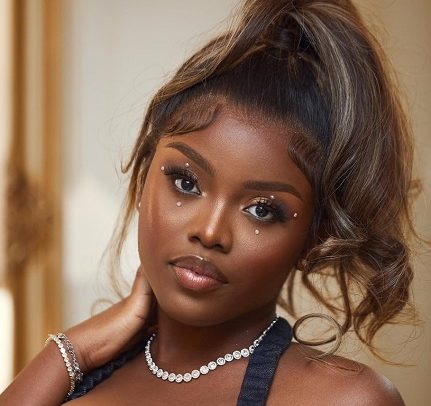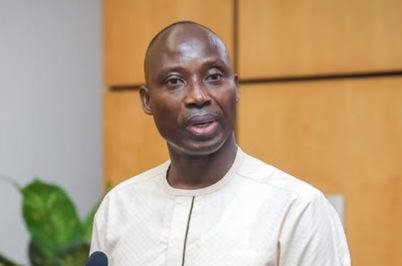“Ghana is hot,” is a saying you’ll hear a lot while in the West African country. Whether you’re talking literally or in the local dialect more generally: ingenuity, creativity, the economy, frustrations, dreams – they’re all boiling over.
Ghanaian music is gradually sprawling across the globe, bringing together Africa and the world to observe the scale and power of music on the continent.
Ghana has gradually become the gateway for a golden age of African music, be it Afrobeat, Rap, Hiplife, Drill, or Reggae dancehall, we have got it covered locally and internationally.
The music industry in Ghana is currently experiencing a slow but steady shift from the usual the ‘big dogs’ like Stonebwoy, Sarkodie, and Shatta Wale to rising stars like Black Sherif, Gyakie, and Camidoh.
A sect of young, bold, talented, and unapologetically unique artistes are rearing their heads up and making a name for themselves within the industry. They do it all—songs, EPs and mixtapes, concerts, media rounds, and more, and all with so much gusto and enthusiasm, you would've thought they've done it all before in a past life. Their work ethic is relentless, and they push the limit of what can be achieved with little or no funding, some talent, and lots of hard work.
Until three years ago, the reigning 2023 VGMA Artiste of the Year, Black Sherif, was just one of the upcoming underground artists with a unique voice.
Black Sherif was undoubtedly Ghana’s biggest breakout star in 2021 and 2022. The 21-year-old rapper, singer, songwriter, and performer from Konongo first made his debut in 2020 and went on to have two years of meteoric stature.
From dropping singles that birthed viral TikTok challenges to securing a Burna Boy feature, Black Sherif’s career has already seen moments that rival the likes of artists many years more established.
For “Kwaku The Traveller”, his travel to achieve his dreams met him halfway and, this is only the beginning of great things in his life but the same cannot be said for other upcoming artists looking to break into the scene, especially for those who are taking a different route with a different language other than the usual English and Twi.
Apart from English, the Akan language, Twi to be precise, is the most dominant language used in songs produced in Ghana as it’s the most widely spoken language. What this means is that artistes from different tribes are ‘forced’ to use Twi as a medium through which they propagate their messages artistically.
Music, we say has no language barrier or simply put; music is not language bound. Many great musicians have made it big across the world by just singing in their local dialects and it takes only a great rhythm to make beautiful music that will attract the ears of music lovers.
The likes of Wiyaala, Fancy Gadam, and King Ayisoba all rose to prominence with their unique musical style, blending traditional African rhythms with contemporary sounds, and have all proved that you can make it without necessarily speaking in English or Twi.
One may ask, why is it so difficult for musicians who sing and rap in different languages other than the “usual” language to penetrate the industry or why does it usually take a long time before they do?
Industry Perspective
Speaking to some upcoming artists who have defiled all odds to do music in different languages other than Twi and English, Phyl4lyph, and Bwayne highlighted the importance of staying original and unique which is why they chose this path.
Phyl4lyph, a Ga (The official language of the people of the Greater Accra Region) rapper explained that he decided to sing in Ga because he grew up listening to and learning the language, so it was easier to express himself.
The rapper, who has been doing music for close to 10 years now, said he appreciates everything he has been through in the industry and even though he has not gotten the mileage yet, he still believes his time will surely come no matter how long it takes.
According to him, upcoming artists deserve to be given a chance by the ‘big cats’ in the industry in order to also be exposed to the market.
Inspired by Asaaka Boys, Phyl4lyph believes underground artistes find it tough to make it because of a lack of resources, adding that nobody wants to invest in them because it is a long shot and that makes it hard for most of them to be seen.
“The underground artiste in Ghana is ready to create, build, and connect with the world, we just need the resources and tools to make things happen, he told Pulse.com.gh.
“If investors are willing to throw a long shot to us if we work together, we can achieve so many things. We can achieve the unexpected.”
Bwayne on the other hand believes doing music in his native language Frafra (the official language of the people of the Upper East Region of Ghana) is a way for him to connect with his roots and his surroundings and for his people to relate with him better.
According to him, the urge to stay original in the industry pushed him to sing in his local language.
“Me trying to stay original and unique is why I choose to sing in Frafra because that is what I can flow easily in and also feel comfortable speaking although I can speak English, Bwayne noted.
On how we can improve diversity and inclusion in the industry, Bismark Sombila, popularly known as Bwayne, said he believes it all boils down to the media, because inclusion and diversity can be achieved if investors invest in young talents out there and also welcome them when they reach out to them.
According to him, everything is centered in Accra when it comes to outreach, promotion, awards, etc. and so if investors open their arms to reach wider talents across Ghana, it will go a long way to help.
“We need revolutionary people who will think of ideas that will position our music to the international world. Sometimes the investors have to put in some funding to promote a song because music is capital intensive, Bwayne said.
“There is this form of investment that is done in music. Nigerian music has investors who invest in their videos to do proper production and project the brands of musicians to the point that they deserve some big money. It’s all about branding.”
“In Ghana, we have the talent. We need to project our image to a point that we can also pair with other musicians from other countries.”
He added that young artists should learn how to brand themselves and package their songs to make them attractive enough for the media to promote because although the media’s job is to promote, they are for profit and won’t promote something that will not benefit them.
Bwayne further explained that money is one of the biggest reasons why underground artistes find it difficult to break into the music industry. According to him, if you don’t have a financially strong team behind you, it will be very difficult.
He added that lack of originality is also one challenge for upcoming talents, and that many don’t strive to be different and that hinders their chances.
“Without proper branding, packaging, marketing, and promotion, nobody will patronize your music, as an upcoming musician you should know the value of branding yourself and that will draw people to you”
“Putting your country on the map is all about originality, Nigerians have done it with their Afrobeat, so whoever you are and in whatever language you are singing in, put in the work of originality, package it, and market it and it will work out just fine”
With what both Bwayne and Phyl4lyph have said, promotion is one key secret to success as an upcoming artiste and one may ask what are the streaming services in Ghana doing to contribute to the success of these young talents?
Streaming platforms in Ghana
In Ghana, Boomplay is an online music streaming platform that caters to African music lovers. The platform allows music artistes and labels to upload, store, and distribute their music to fans in Africa and beyond. It also offers music fans an opportunity to discover new music and artists.
Speaking to Paul Azumah-Ayitey, Public Relations Manager of Boomplay Ghana, he said: At Boomplay, we believe artists are the heartbeat of the music industry, and emerging or upcoming artistes especially are key to sustaining its future. Thus, we are constantly initiating programs and building online and offline promotional assets to meet the needs of emerging artists and enable them to thrive in the ever-changing music industry.
For instance, when it comes to education, we operate an open-door policy for inquiries about how they can better use the Boomplay platform to promote their songs and build listenership. We also occasionally partner with the media and relevant entities to provide education about the digital music economy.
With regards to promoting upcoming artists, Boomplay has specially curated playlists that spotlight upcoming artists to music consumers. In addition to this, we have in-house artiste programs that identify upcoming artists based on set criteria, and then we reach out to their management teams to provide promotional support.
Boomplay has over the years also sponsored artistes' events as well as other music industry initiatives that center on emerging artistes and music development, and in line with our yearly objectives.”
For an artist to be successful, you have to do a lot of promotion and this, according to Elorm Beenie - PR Consultant/Publicist, Artiste Manager, and Creative Director - is the key to the success of your music.
According to him, “You can’t record and refuse to promote. It’s like selling in the dark. Nobody will buy it. You can have a good or influential song, if you don’t promote it nobody will hear you.”
Language is crucial in music. Even though it might not be as vital as melody, it enables the audience to further connect to tracks. The science is simple: people remember what they understand and this is something Nigerians understand. Even when they perform in their local languages, they ensure the chorus or hook is English. This is a deliberate choice.
For an upcoming artist to be successful, one must learn the concept of branding. Branding and lifestyle are vital.
One might need to align themselves with the right companies and have proper funding to get their music to the international market.
Investing so much in developing brands and lifestyles as an artist is very key. Nigerian musician Rema came with a mask. Ruger is known for his eye patch. The imagery created by these items makes it easier for the audience to identify and differentiate their brands.
The luxurious lifestyle also contributes to the buzz around these artists and until Ghanaians learn this trick, they will always remain at the bottom no matter the languages they sing in.
Read Full Story























Facebook
Twitter
Pinterest
Instagram
Google+
YouTube
LinkedIn
RSS